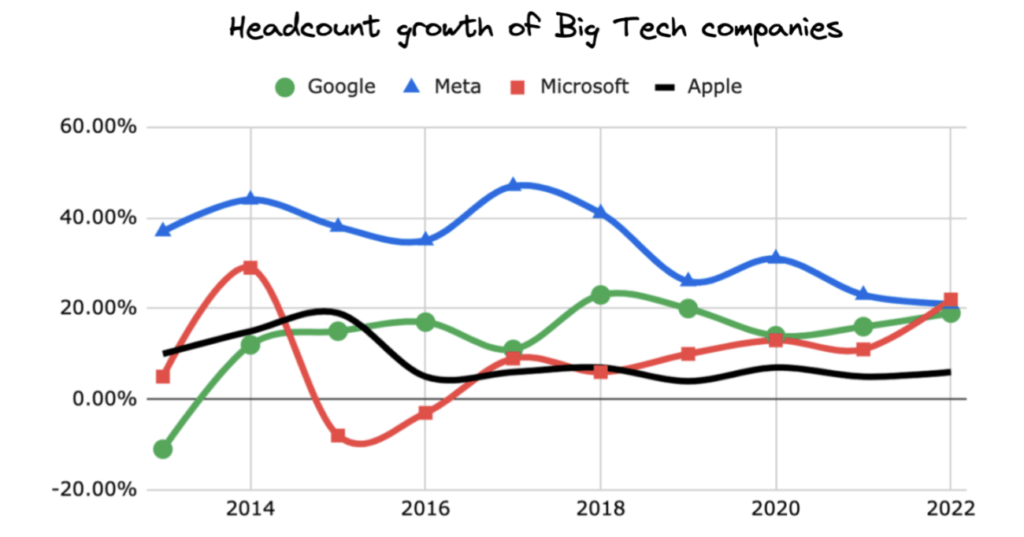In the global technological landscape, a worrying phenomenon is taking hold. Large companies like Meta, Google and Amazon, once bastions of innovation “compatible” with employment stability, have begun a season of large-scale layoffs. This trend, blamed by companies such as Paytm e dropbox to the advent of artificial intelligence, hides a more complex and multifaceted reality.
The real story behind Big Tech layoffs
The waves of cuts, which began during the post-pandemic recovery, are repeated in various parts of the world. The reasons, as mentioned, oscillate between the advancement of AI and the need to optimize quarterly financial results.
The example of Salesforce is emblematic: at the beginning of 2023, the company announced the layoff of 10% of its staff, equivalent to over 7.000 employees. This decision, taken as part of a restructuring strategy announced by the CEO Jane fraser, was followed by promising financial results for subsequent quarters.
In summary, the practice of hiring and then firing based on immediate financial needs apparently highlights an unstable work environment. And essentially? The decisive transition from the defense of assets to that of profit.
The paradox of restructuring
The pattern, as mentioned, is repeated everywhere. In India, TCS confirmed the hiring of a significant number of new graduates, planning to hire another 40.000 during 2024. However, Milind Kakkad, Chief HR Officer, said drastic decisions will be made if necessary to maintain efficiency.
Also BlackRock, multinational investment management company, he planned to reduce 3% of its staff, or 600 employees, to defend its profit margins.
The artificial intelligence excuse
Not all layoffs can be attributed to AI. Artificial intelligence is often used as a scapegoat for inconvenient business decisions. Ducan, a DIY e-commerce platform, made headlines for laying off 90% of its support staff, replaced by an AI-powered chatbot, even though the company had already faced two waves of layoffs.
Is there anyone who stands out? Startups like Zoho, cling to “conservatively agile” methodologies. They will not resort to layoffs ("and we never will", they say at the company), but will relocate employees internally. And then there is model Apple Lossless Audio CODEC (ALAC),: we remain understaffed, we don't hire and we don't increase salaries. What did the guy say? Stay hungry.

Layoffs and trends: conclusions
The recent history of Big Tech tells us of a rapidly evolving world, where business decisions are increasingly based on short-term economic and performance factors.
This reality, while financially effective, poses significant challenges in terms of job stability and staff morale. In such a dynamic and competitive sector, finding a balance between the need for immediate results and employee well-being will be the crucial challenge for technology companies in the coming years.


